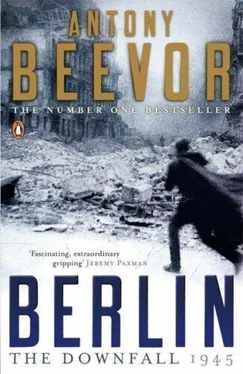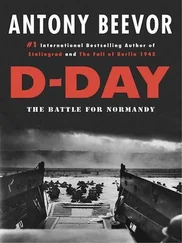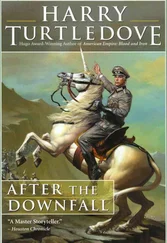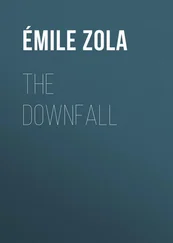Himmler seldom ventured out of his luxurious special train, the Steiermark, which he had designated his ‘field headquarters’. The Reichsführer SS now realized that the responsibilities of military command were rather greater than he had imagined. His ‘insecurity as a military leader,’ wrote Colonel Eismann, ‘made him incapable of a determined presentation of the operational situation to Hitler, let alone of asserting himself. Himmler used to return from the Führer situation conference a nervous wreck. Staff officers received little pleasure from the paradox that the feared Himmler should be so fearful. His ‘servile attitude’ towards Hitler and his fear of admitting the disastrous state of his forces ‘caused great damage and cost a vast amount of unnecessary blood’.
Himmler, seeking refuge in the Führer’s own aggressive clichés, talked of more counter-attacks. Following the Demmlhuber débâcle, Himmler set his mind on establishing the so-called Eleventh SS Panzer Army. In fact the whole of Army Group Vistula in the early days contained only three under-strength panzer divisions. At best, the formations available constituted a corps, ‘but panzer army’, observed Eismann, ‘has a better ring to it’. Himmler had another motive, however. It was to promote Waffen SS officers on the staff and in field command. Obergruppenführer Steiner was named as its commander. Steiner, an experienced soldier, was certainly a much better choice than other senior Waffen SS officers. But he did not have an easy task.
General Guderian, determined to keep a corridor open to the edge of East Prussia, argued at a situation conference in the first week of February that an ambitious operation was needed. He was even more outspoken than usual that day, having drunk a certain amount at an early lunch with the Japanese ambassador. Guderian wanted a pincer movement from the Oder south of Berlin and an attack down from Pomerania to cut off Zhukov’s leading armies. To assemble enough troops, more of the divisions trapped uselessly in Courland and elsewhere needed to be brought back by sea and the offensive in Hungary postponed. Hitler refused yet again.
‘You must believe me,’ Guderian persisted, ‘when I say it is not just pig-headedness on my part that makes me keep on proposing the evacuation of Courland. I can see no other way left to us of accumulating reserves, and without reserves we cannot hope to defend the capital. I assure you I am acting solely in Germany’s interests.’ Hitler began trembling in anger as he jumped to his feet. ‘How dare you speak to me like that?’ he shouted. ‘Don’t you think I’m fighting for Germany? My whole life has been one long struggle for Germany!’ Colonel de Maizière, the new operations officer at Zossen, had never seen such a row and stood there shocked and afraid for the chief of staff. To bring an end to Hitler’s frenzy, Goring led Guderian out of the room to find some coffee while everyone calmed down.
Guderian’s main fear was that the Second Army, trying to maintain a link between East Prussia and Pomerania, was in danger of being cut off. He therefore argued instead for a single attack southwards from the ‘Baltic balcony’. This attack on Zhukov’s right flank would also deter the Soviets from trying to attack Berlin immediately. On 13 February, a final conference on the operation was held in the Reich Chancellery. Himmler, as commander-in-chief of Army Group Vistula, was present, and so was Oberstgruppenführer Sepp Dietrich. Guderian also brought his extremely capable deputy, General Wenck. Guderian made plain right from the start that he wanted the operation to start in two days’ time. Himmler objected, saying that not all the fuel and ammunition had arrived. Hitler supported him and soon the Führer and his army chief of staff were having another row. Guderian insisted that Wenck should direct the operation.
‘The Reichsführer SS is man enough to carry out the attack on his own,’ Hitler said.
‘The Reichsführer SS has neither the requisite experience nor a sufficiently competent staff to control the attack single-handed. The presence of General Wenck is therefore essential.’
‘I don’t permit you,’ Hitler shouted, ‘to tell me that the Reichsführer SS is incapable of performing his duties.’
The argument raged for a long time. Hitler was literally raving in anger and screaming. Guderian claims to have glanced up at a helmeted portrait of Bismarck, the Iron Chancellor, and wondered what he thought of what was happening in the country he had helped to create. To Guderian’s surprise, Hitler suddenly stopped his pacing up and down and told Himmler that General Wenck would join his headquarters that night and direct the offensive. He then sat down again abruptly and smiled at Guderian. ‘Now please continue with the conference. The general staff has won a battle this day.’ Guderian ignored Keitel’s remonstrances later in the anteroom that he might have caused the Führer to suffer a stroke. He feared that his limited triumph might be short-lived.
On 16 February, the Pomeranian offensive, known as the Stargard tank battle, began under Wenck’s direction. Over 1,200 tanks had been allocated, but the trains to transport them were lacking. Even an under-strength panzer division needed fifty trains to move its men and vehicles. Far more serious was the shortage of ammunition and fuel, of which there were enough for only three days of operations. The lesson of the Ardennes offensive had not been learned.
Army staff officers had intended to give the offensive the codename ‘Husarenritt’, or Hussar ride, which in itself seemed to acknowledge that this could be no more than a raid. But the SS insisted on a much more dramatic name: ‘ Sonnenwende’, or solstice. In the event it was neither a Hussar ride — a sudden thaw meant that the armoured vehicles were soon bogged down in the mud — nor a solstice, since it changed very little. The Wehrmacht could ill afford the heavy loss of tanks when the 2nd Guards Tank Army counter-attacked.
The highest-ranking casualty was General Wenck, who, driving back to his headquarters from briefing the Führer on the night of 17 February, fell asleep at the wheel and was badly hurt. He was replaced by General Krebs, a clever staff officer who had been military attaché in Moscow before Operation Barbarossa. The attempt to force back the Soviet counter-attack, however, had to be abandoned after two days. All that can be said in favour of the offensive is that it bought time. The Kremlin became convinced that a quick dash to Berlin was out of the question until the Pomeranian coastline was secured.
Hitler’s attempts to designate ‘fortress’ towns and to refuse to allow the evacuation of encircled troops, were part of a suicidal pattern of enforced sacrifice and useless suffering. He knew that they were doomed because the Luftwaffe lacked the fuel and aircraft to supply them, and yet his policy deprived Army Group Vistula of experienced troops.
Königsberg and Breslau held out, but other towns designated as fortresses or breakwaters by Hitler soon fell. In southern Pomerania, Schneidemühl, the smallest and the least well defended, fell on 14 February after a desperate defence. For once, even Hitler had no complaints and awarded Knight’s Crosses to both the commander and the second-in-command. Four days later, on 18 February, just as Operation Sonnenwende became bogged down in the mud, General Chuikov gave the signal for the storming of the fortress of Poznan. His 7th Department, as at Stalingrad, had preceded the bombardment with loudspeaker programmes of lugubrious music interspersed with messages that surrender was the only way to save your life and return home. The Germans were told that they had no hope of escape because they were now over 200 kilometres behind the front line.
Читать дальше











